
a contribution to the topic of the theory of the practice of Sabotage
Who will revive the violent whirlpools of flame if not us
and those that we consider brothers?
Come! New friends: this will please you.
We will never work, oh tides of flame!
This world will explode.
It’s the true path. Forward, on the march.
—A. Rimbaud
The spread of sabotage, its increasing practice, on a greater or lesser scale, far and wide against the domination of the market is a given fact. Burning ATM booths, disabling locks at shopping centers, smashing shop windows, setting fire to the offices of temp agencies and employment offices, the sabotage of the infrastructure of capitalism (high-speed railroads, dams, expressways, construction projects) … are offensive practices against the colonization of our lives by the most advanced form of colonialism – the integrated spectacle.
All this is put into practice by individuals as bored with survival as with commodities (life reduced to economic imperatives) and disillusioned with false opposition (more false and less oppositional with each day that goes by), parties and unions that want to manage our misery and integrate us into a mode of production that prevents us from any participation in the decisions that relate directly to us and that assist in enslaving us, mutilating every gesture of negation of the existent.
The spectacle writes the scenario and distributes the roles: worker, professor, student, housewife, mother, father, son, daughter, unemployed, police, soldier, artist, humanitarian, intellectual… the majority, individuals who assume different roles in the course of 24 hours, see their existence as still more terrible, assuming this is possible. Everyone with his [or her] neuroticschizoid viewpoint will react to the stimuli launched by power in the way that was already expected.
All social activity is planned in order to reinforce the spectacle, thus slowing down its unstoppable process of decomposition. Though we don’t want to hear the shrieking of militants of whatever organization, clearly we are not against the concept of “organization” as such, but against “organization” conceived as an end in itself , as the crystallization of any ideology, and as a separated organ, representing a class.
We are for the autonomous self-organization of the exploited. History has shown through two clear examples that the traditional form of the party (Russian revolution) and union (Spanish revolution) were nothing more than two attempts to manage capitalism and not to overcome it, and this is something that, consciously or unconsciously, everybody knows. In the seizure of power, it is not destroyed, but exercised: in the first case, the class of bureaucrats replaced the bourgeoisie, and in the other case, the anarcho-syndicalist leaders participated in bourgeois power, calling for the self-management of exploitation and alienation, while the base tried to overcome the relationships of production and social relationships in practice through the direct management of every aspect of their lives and not just work.
To be precise, both forms have the exaltation of work in common (something that they also share with national-socialism and with every political form of capitalism).
Their quantitative vision sought an increase in production, leaving aside the qualitative increase of life. This (practical and theoretical) defeat of the traditional organizations, which claim to represent us, has not been absorbed by the working class (it seems that we only know how to work), and we go along without maintaining any possibility of control over essential aspects of our lives, in a world that is developed, not only without our participation, but against us.
But, comrades, history is not cyclic; it is a cumulative process and already weighs too heavily upon our weary bodies.
Never did mockers waste more idle breath.
—William Shakespeare
A Midsummer Night’s Dream
The contradiction between the possibilities of the means of production (the use of a few of them for the enjoyment of all, since most of them are useless and harmful and would be destroyed) and the relations of production (waged exploitation, commodification, the exclusions of class society) has reached an insurmountable point of rupture. In the spectacle it is easier to falsify the nature of this contradiction than to increase mercantile production with increasing use value. This inertia forces it to display all of its methods for recuperating any real movement of opposition and to turn the spectacular critique of the spectacle to its advantage.
A self-critical hypocrite directed by its own police of decomposed thought (pro-situationists, cadres, nongovernmental organizations, recuperators, artists, journalists… the clique of politically correct alternatives).
These toilet brushes of modernity, like good priests, hope that with their patches, the proper development of the system will lead us, hand in hand, into an ideal world planned by their false consciousness and by the putridity of their armoured brains; as if they had ever given us anything. Their social function, which has been denounced for decades already, has been worth more to them than any aggressions, beatings or assassinations, and we are sure that these will not be mere anecdotes. They deceive and manipulate us. We must not allow them to have a single day more. They are the guardians of the keys of our informal chains. They amuse us with insignificant debates. They impose their opinions on us, avoiding questions so simple that they make them tremble with terror: How best to live? Who and what keeps us from this? Questions that immediately unmask the professionals of the lie. Critical coherence and the critique of incoherence aid this operation.
Injustice is not anonymous; it has a name and an address.
—Bertold Brecht
Situationist theory, as integral critique of the totality of the conditions of survival and of the mercantile-spectacular capitalism that necessitates them, has been confirmed in events as falsification.
One cannot fight alienation by means of alienated forms. The sabotage of this world starts with a break with the roles the system imposes on us, the sabotage of our death in life and the refusal of the roles that they have allotted and appointed to us. To speak of Revolution in these times is “to have a corpse in one’s mouth”. We only need to look around ourselves to see a scenario that constantly reminds us of defeat. Sabotage is thus an action that serves as a propellant against the unreality that oppresses us. A practice that has not gone unnoticed by ideological recuperation, which has transformed it into “terrorism” (the professionalization of sabotage that has done no more than reinforce the system, due to its centralist, hierarchical and militarist character). Today, what is proposed is not the creation of an armed organization of this type, but widespread attack by small affinity groups, uncontrollable by any higher organization, that come together and dissolve like the lunar tides. The tides that are born of the awareness of how bad things are and of the worsening that awaits us due to events.
In the 19th century, such a practice existed that put the incipient capitalism in check. Beyond the Luddite attacks, the “proletarian rounds” rendered their repression and recuperation, in which the embryonic unions would play a role, almost impossible due to their lack of a rigid structure and their maximum flexibility in attacks. A group of people came together, struck and disappeared into the mass, while a new group came together within it. Such widespread sabotage makes it difficult for the enemy to organize repression. Thus it transforms the attack into a universe of pleasure for the enlightened hooligan, the feelings of which are impossible to describe or communicate with the poor and banal language of words.
The game of subversion, the rules of which are written by those that participate in it, becomes an effective weapon against capitalism in all its forms.
There is much more to destroy than to build.
Our epoch does not need to write poetic slogans, but to realize them.
—Situationist International
It has been demonstrated that small groups that attack do more damage than large organizations that specialize in armed struggle. The Angry Brigade continued its actions when people were arrested and the English state assumed the movement had fallen apart. The Kale Borroka (street struggle) in Euskadi, which Jarrai (the youth organization of the Basque nationalist left, NDR) recently declared uncontrollable is another example. Power has difficulty repressing and eliminating little groups that with complete security do not know each other, and the only thing that unites them is the desire for the destruction of a system that prevents them from living and condemns them to survival and uncertainty. They don’t attempt exhibitionist actions in order to make propaganda as some acronym or mark of origin. In the case of the Asturias, sabotage was a class weapon used innumerable times, particularly in labor conflicts with these enterprises: Duro Felguera, Hunosa, Naval and Ciata…(Asturian businesses and mines where sabotage was determinant in the struggles going on in the 1990’s); every weary person, regardless of her or his ideology, uses it. From the clerk who steals office supplies to the worker who damages the machine to which he is chained, passing through the use of plastic explosives like the licensed professionals of Duro Felguera. Today, the example is the burning of the ETTs (temporary employment agencies). The practice of sabotage remains limited to precise and very localized conflicts, without global perspectives, simply aiming for partial solutions with economic demands that remain within imposed limits where capitalist logic unfolds. The same holds in the case of the ETTs, an attack that goes beyond the temporality of a conflict in one enterprise, but that does not place wage slavery into question. Instead it only questions its most extreme form, not aiming at putting an end to exploitation, but rather to the ETTs.
Today the conflict is global and it is not resolved through partial struggles, but through total struggle and through the refusal of this society as a whole. It is necessary to put an end to the reduction of our lives to commodities and to wage labor that wears us out, not just to ETTs. We must put an end to class society and not just fascism. Misdirecting our attention toward partial objectives only benefits the managers of our misery and those who will one day lay claim to its management, and both are among the targets for sabotage.
The widespread practice of sabotage (unhindered autonomy, maximum flexibility, self-organization, minimum risk) among like-minded individuals, opens the possibility for real communication, destroying spectacular communication, smashing the apathy and impotence of the eternal revolutionist monologue. Relationships and the possibility of contact with other people in the refusal of the spectacular role, these are transient situations that in their preparation and development carry in their essence the qualities of the revolutionary situation that will not retreat and that will suppress the conditions of survival. It does not fall into the irremediable alienating hierarchization that every specialized armed group of an authoritarian and militaristic character, to which the masses delegate their participation in the attack, carries within itself
The quantitative growth of this practice does not come to us from the hands of propagandists of the spectacle, but rather by taking a walk through the scenario of capitalism, and finding in this drift the burned ATM, the ETTs with shattered windows, the smiths changing the locks of a supermarket. These visions make our complicit smiles blossom and move us to go out that very night to play with fire with the aim of making the same smiles rise on the faces of unknown accomplices through the fellowship of destruction. The number doesn’t matter, but rather the quality of the acts: sabotage, expropriation, self-reduction… they return part of the life that is denied us back to us, but we want it all.
Comrades, the game is yours and we take courage in its daily practice. Organize it yourselves with your accomplices.
Against the old world in all its expressions, in order to leave pre-history, let’s launch and multiply attacks.
FOR THE ABOLITION OF CLASS SOCIETY
AGAINST THE MARKET AND WAGE LABOR
FOR ANARCHY
FOR COMMUNISM
STONES AND FIRE
Asturian Institute of Comparative Vandalism
http://turbellaria.blogspot.com/2009/12/on-sabotage-as-one-of-fine-arts.html







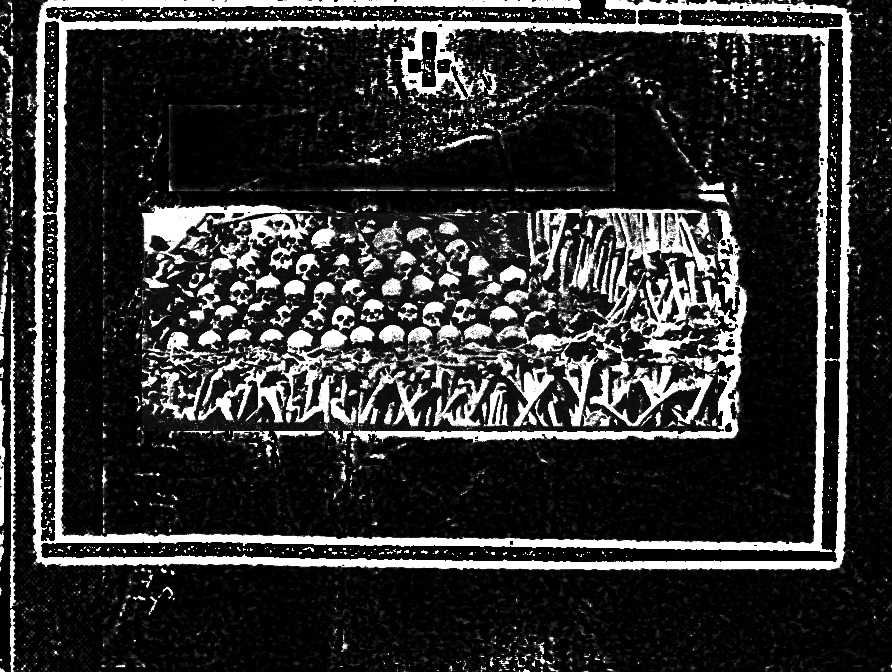
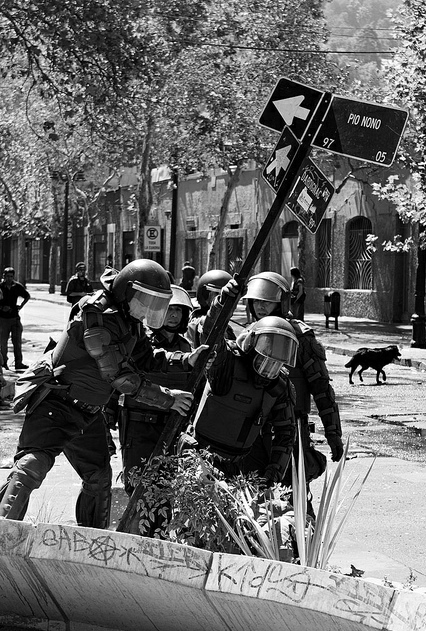



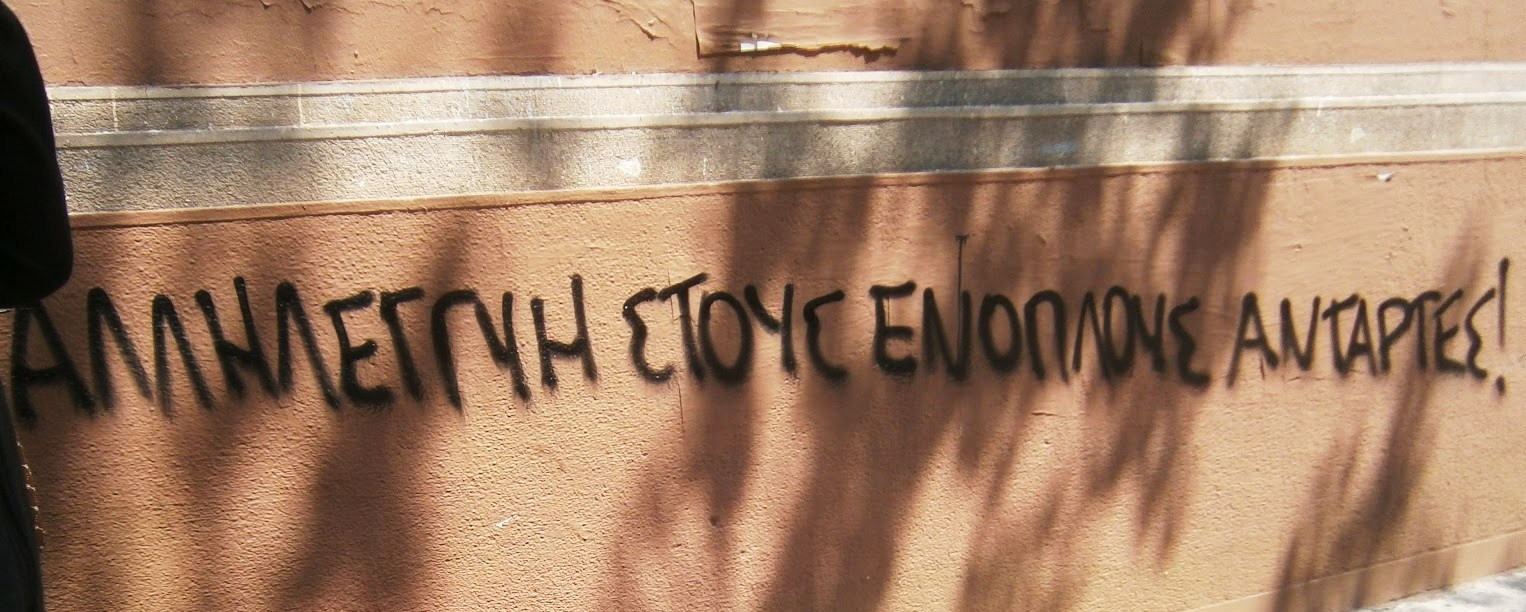

![Eurorepressione - Sulla conferenza a Den Haag sul tema "Anarchia" [corretto]](http://25.media.tumblr.com/tumblr_m0jvngOXtY1qa2163o1_1280.jpg)

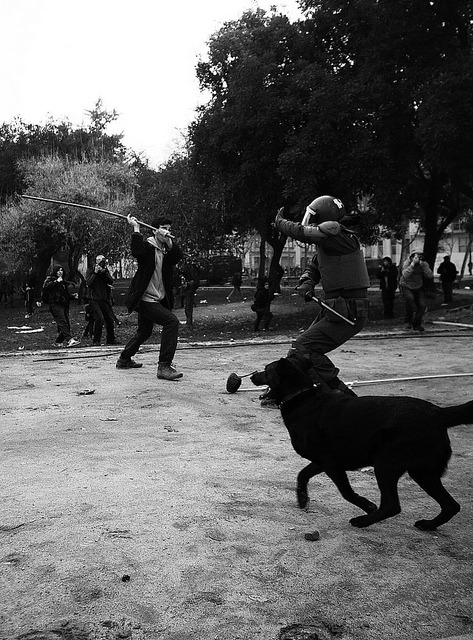
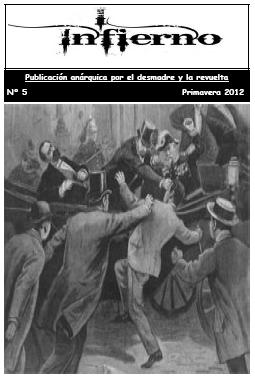
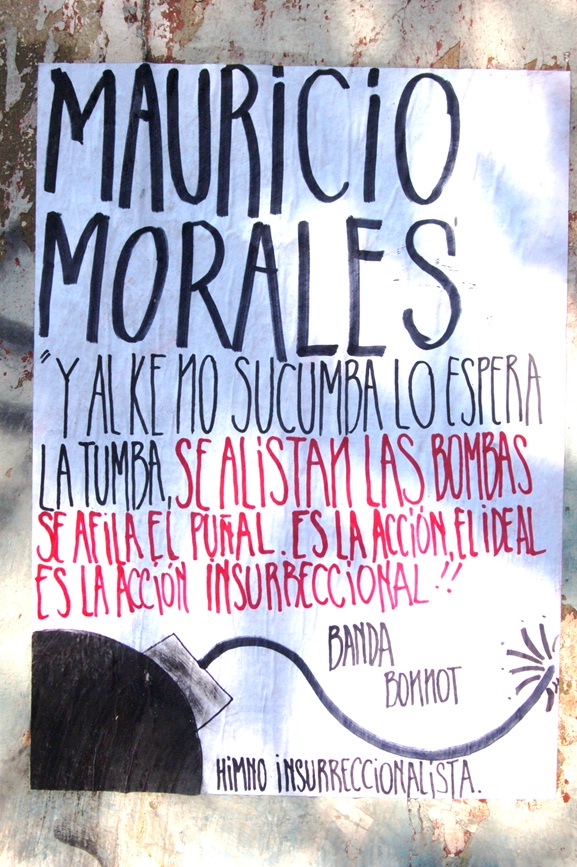
![A tres años de la Partida de Mauricio Morales: De la Memoria a la Calle [Stgo.]](http://metiendoruido.com/wp-content/uploads/2012/05/mmacividad.jpg)







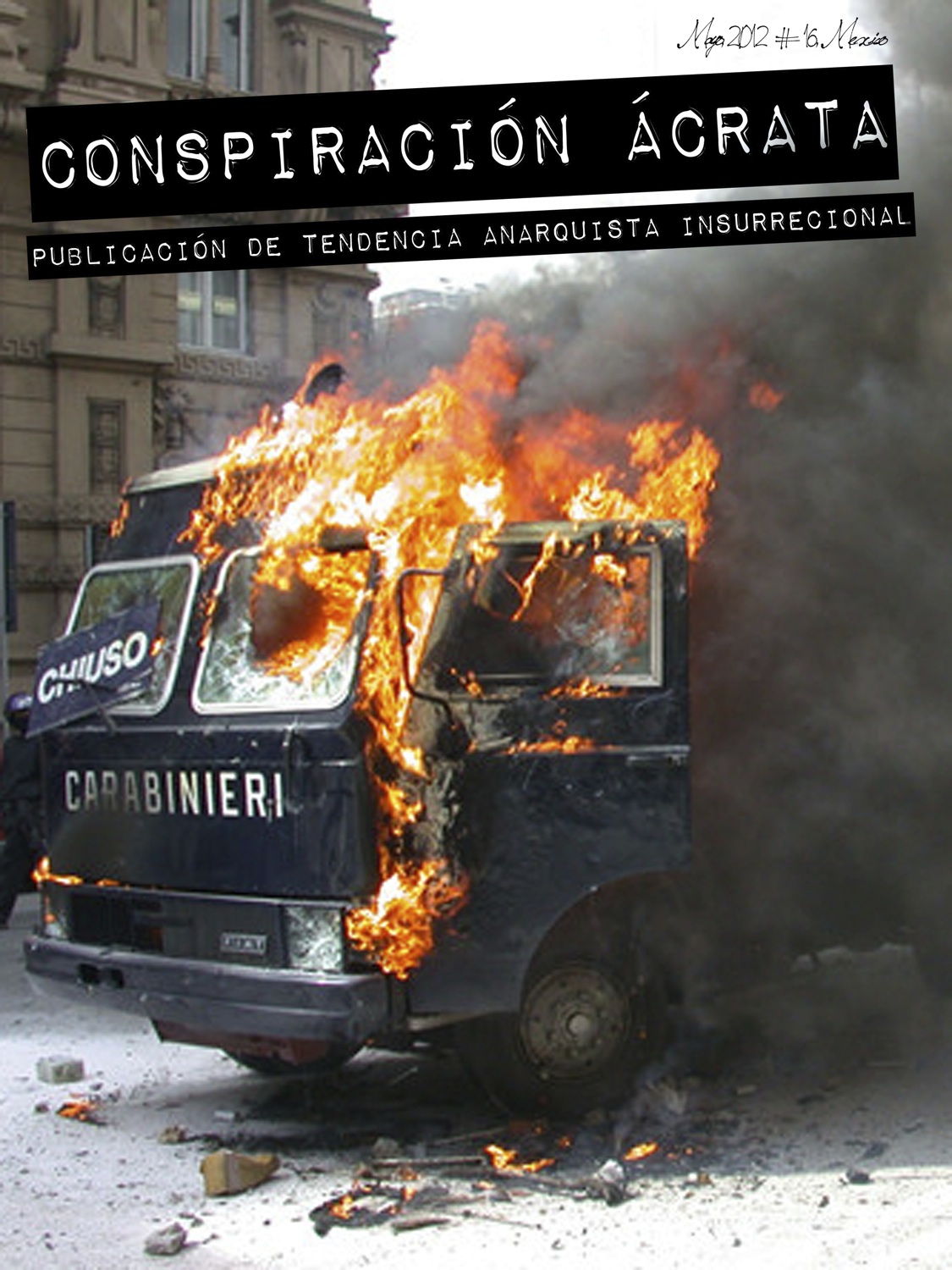

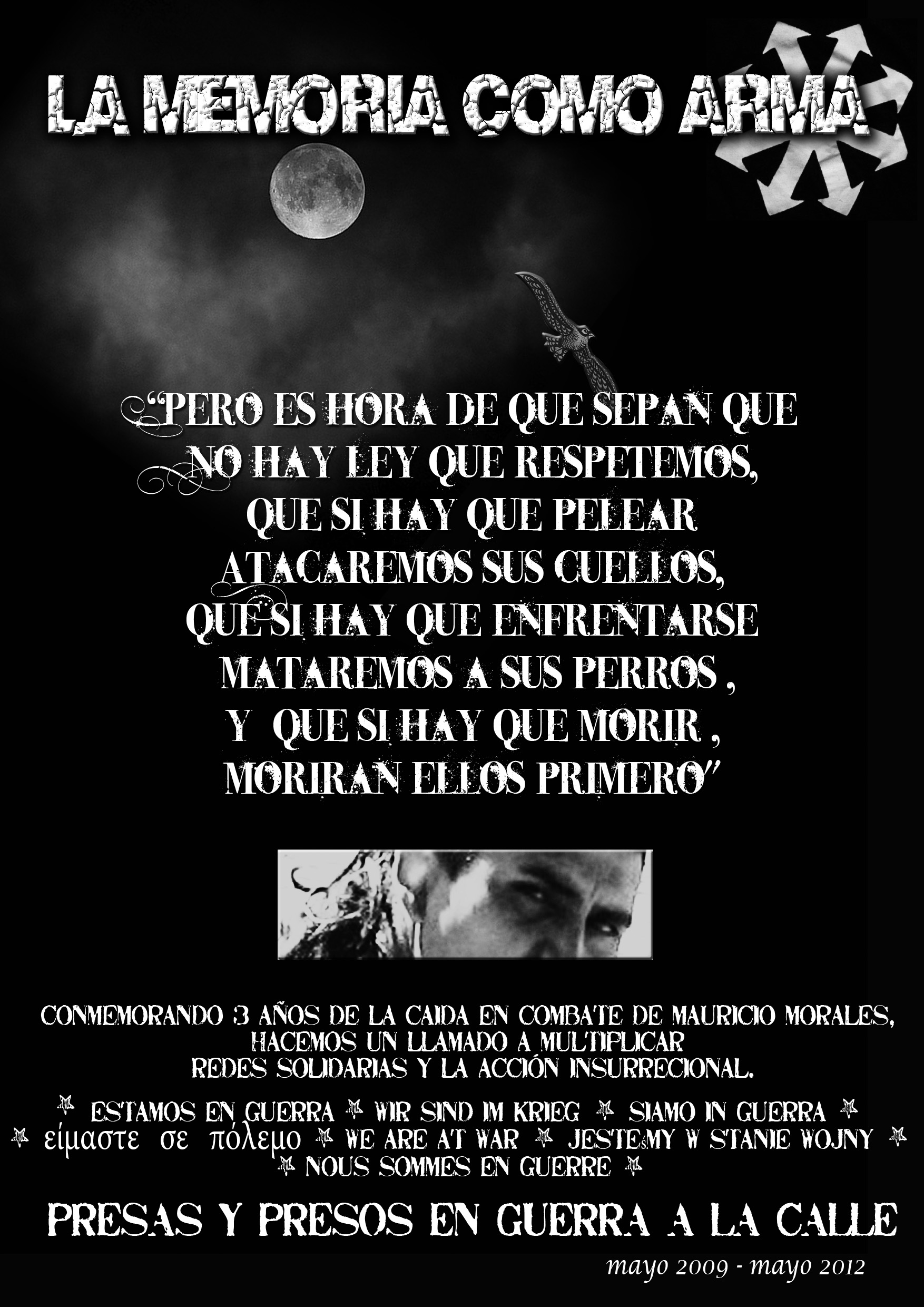
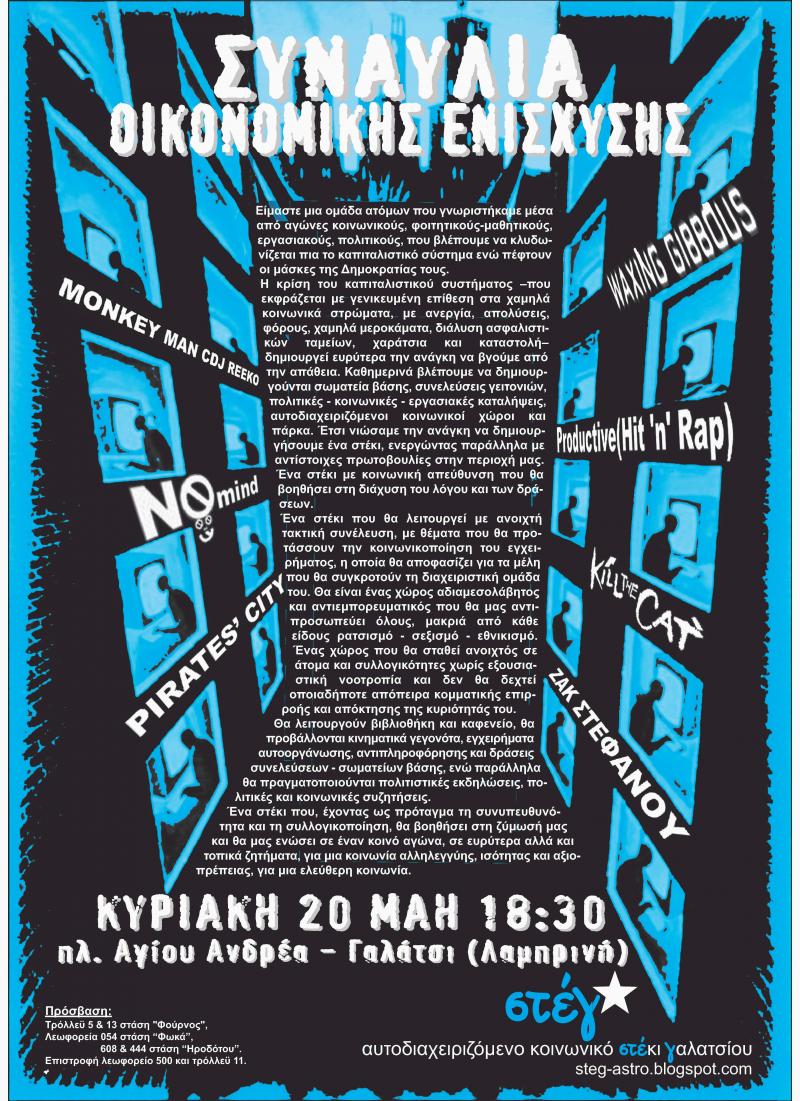








Nessun commento:
Posta un commento